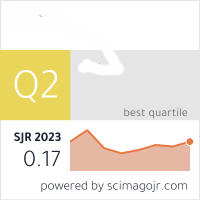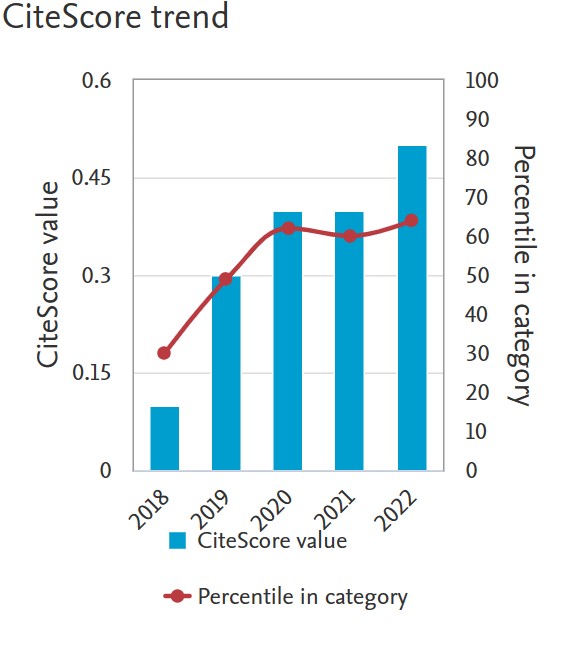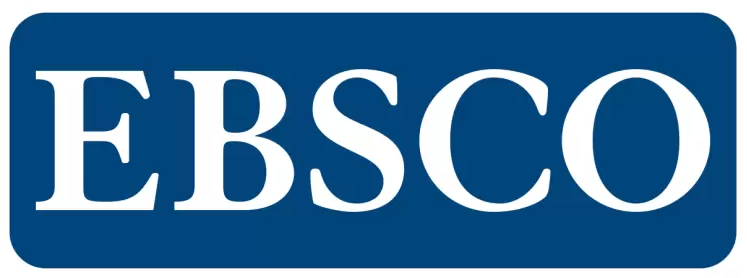Management of Development of Hard Skills and Soft Skills in Improving the Professional Competence of Madrasah Aliyah Teachers
(Qualitative Study at Cipasung Islamic Boarding School and KH Zaenal Mustofa Sukamanah Islamic Boarding School in Tasikmalaya Regency, West Java)
Keywords:
Management, Hard Skills and Soft Skills, Teacher CompetenceAbstract
The background of this research is the weak management of madrasah management, the absence of a clear and comprehensive policy framework regarding madrasa management, the number, quality and competence of teachers is still low and mismatched, facilities and infrastructure are still inadequate, and the conditions of madrasas are very varied. The purpose of this study was to obtain an overview of planning, organizing, implementing, evaluating, the impact of developing hard skills and soft skills in improving the professional competence of teachers in MA in Barru district. The theological basis used is Q.S Al-Isra ’verse 84, the philosophical basis uses the philosophy of constructivism, the theoretical basis discusses management and development theory. This study uses a qualitative approach and data collection techniques are carried out through observation, interviews and documentation studies, while the data sources through triangulation: Madrasah Principals and Teachers. The resultsshowed: First, the development planning in the two madrasas used four stages, namely: analyzing the internal and external environment including government policies and local government policies, forming a teacher competency development team, compiling a draft development plan and then becoming a development plan document. Second, the organization of development in the two madrasas carried out four stages, namely, division of labor, work processes, delegation of authority and communication. Third, the implementation of development in both madrasas uses the reference of eight educational standards and the implementers of this competency development are teachers and school principals. The implementation plan is prepared by the teacher in the form of a syllabus and learning development plan that is adjusted to the time allocation. Fourth, the evaluation of the development of the two madrasas carried out several stages, namely: initial evaluation, evaluation of the plan, evaluation of the process, evaluation of learning outcomes, evaluation of the overall development program. Fifth, the impact of implementing teacher competency development is the existence of high independence and authority from teachers and school principals in compiling and implementing and evaluating teacher competency development programs, increasing the quality of graduates based on Islamic values and morality. The solution is to carry out coaching consciously, systematically and continuously to improve and develop the quality of the profession and the quality of teacher work so that through management the development of hard skills and soft skills can shape teachers to have critical, creative, collaborative and skilled ways of thinking, able to think critically in solving social problems that occur in society
Downloads
References
Abady, Y. (2012). K.H. Abdur Rahman Ambo
Dalle's Way of Thinking on Religious
Education, Jakarta: Rabbani Press
Affandi, P. (1994). Human Resource
Management, Yogyakarta: Zanafa Arikunto,
S. (1998). Research techniques and
procedures, Jakarta: Rake Saragih. Atmowiryo, S. (2000). Indonesian education
management, Jakarta: BalaiPustaka
Black, J. and Champion, D. (1999). Social
Research Methods and Problems, Jakarta:
Refika Aditama
Bogdan and Taylor. (1975). Qualitative Research
Methodology. Bandung: Remadja Work
Bungins, (2008). Quantitative Research
Methodology: Communication, Economics
and Public Policy and Other Social Sciences,
Bandung: Student Libraries
Dajan, A. (1986). Introduction to Statistical
Methods II, LP3ES Publisher, Jakarta.
Daryanto, (2007). Education Administration,
Jakarta: Rineka Cipta
RI Ministry of Religion. (1995). Al-Quran and its
Translation, Semarang: Toha Son.
Djamarah and Bahri, S. (2005). Teachers and
Students in Educative Interaction, A
Psychological Theoretical Approach, Jakarta:
Rineka Cipta.
Echols, John, M., and Shadil, H. (1993).
Indonesian English Dictionary, Jakarta:
Gramedia Pustaka Utama.
Effendy, M. (1986). Management A Doctrinal
Based Approach Islam, Jakarta: PT. Bhratara
Script.
Elfindri, (2011). Soft Skills for Educators, Jakarta:
Baduose Media Faisal, S. (1989). Social
Research Formats, Jakarta: LP3ES
Geist, J.R. (2002). Predictors of Faculty Trust in
Elementary Schools: Enabling Bureaucracy,
Teacher
Handoko, H. (2012). Personnel Management and
Human Resources, Yogyakarta: BPFE
Hasibuan, M.S.P. 2005. Human Resource
Management. Revised Edition.
Jakarta: Earth Script
Ibrahim and Syaodih, N. 2003. Teaching
Planning. Jakarta: PT. RinekaCreate
Indonesian Ministry of Religion. (2011). Soft Skill
Development Module for PAI Teachers,
Jakarta: Directorate General of Islamic
Education.
Kotler, Philip and Keller, K. (2011). Marketing
Management, Volume 1, Translated by
Benjamin Molan. Jakarta: PT. Group Index
Gramedia
Kusnandar. (2009). Professional Teacher Level
Curriculum Implementation Education Unit
(KTSP) and Attitudes to Success in Teacher
Certification, Jakarta: PT. King of Grafindo
Persada.
Majid, A. (2005). Learning Planning and
Developing StandardsTeacher Competency.
Bandung: PT Juvenile Rosda Karya.
Manulang, M. (2012). Fundamentals of
Management, Yogyakarta: Gajah Mada
University Press
Miles and Matthew, H. (1992). Qualitative Data
Analysis. Jakarta: University of Indonesia
Press.
Moleong, L.J. (1996). Qualitative Research
Methodology, Bandung:Rosdakarya Youth.
Moleong, L.J. (2004). Qualitative Research
Methodology, Bandung:Rosdakarya Youth.
Mondy, R. and Noe, M. (2016). Human
Resource Management, Tenth Edition,
Volume I, Translator Erman., Jakarta:
Erlangga.
Mulyasa, Guidelines for Madrasah-Based
Management, Jakarta: Department RI
Religion, 2005
Nurdin, S. (2002). Professional Teachers and
Curriculum Implementation, Jakarta:
Quantum Teaching
Payong and Marselus R. 2011. Teacher
Professional Certification. Jakarta:PT Index.
Purwanto, N. (2009). Theoretical and
Practical Educational Sciences.
Bandung: Rosdakarya Youth.
Rao, M.S. (2010). Soft Skill Enhancing
Employability: Connecting Campus With
Corporate, New Delhi India: International
Publishing House.
Rosyada, D. (2004). Paradigm of Democratic Education A Model of Community
Involvement in Organizing Education, Jakarta:
Kencana. Sagala, S. (2009). Professional
Capability of Teachers and Education
Personnel, Bandung: Alphabet.
Sagala, S. (2006). The Concept and Meaning of
Learning. Bandung: CVAlphabet.
Salmiah, S. (2011). Management of Islamic
Education, Jakarta: RabbaniPress
Saondi and Suherman, A. (2010). Teacher
Professional Ethics, Bandung: PT Aditama
Refika.
Sanjaya, W. (2008). Educational Process
Standard Oriented Learning Strategies,
Jakarta: Kencana.
Sanusi, A. (2015). Value System, Bandung:
Scholarly Nuances
Satori and Jam'an. (2010). Teaching Profession,
Jakarta: The OpenUniversity.
Sa'ud and Syaefuddin, U. (2010). Teacher
Professional Development.
Bandung: Alphabet.
Schumacher, S. (2001). Research In Education
A Conceptual Intruduction, Vegenia
Commonwealth University.
Scott, M.G. (1999). Management Information
System, Jakarta: Raja GrafidoPersada.
Siagian, S. (2008). Human Resource Management,
Jakarta: PT. Script Earth. Silberman and Melvin
L. (2009). Active Learning: 101 Ways of Active
Student Learning (Translation: Raisul
Muttaqien). rev. ed. Bandung:
Nusamedia.
Spradley, P. and James. 1979. Participant
Observation. Florida: Holt, Rinehart and
Winston
Stephen, P.R (2003). Organization Behavior,
Tenth Edition, Upper Saddle River, New
Jersey
Downloads
Published
Issue
Section
License
You are free to:
- Share — copy and redistribute the material in any medium or format for any purpose, even commercially.
- Adapt — remix, transform, and build upon the material for any purpose, even commercially.
- The licensor cannot revoke these freedoms as long as you follow the license terms.
Under the following terms:
- Attribution — You must give appropriate credit , provide a link to the license, and indicate if changes were made . You may do so in any reasonable manner, but not in any way that suggests the licensor endorses you or your use.
- No additional restrictions — You may not apply legal terms or technological measures that legally restrict others from doing anything the license permits.
Notices:
You do not have to comply with the license for elements of the material in the public domain or where your use is permitted by an applicable exception or limitation .
No warranties are given. The license may not give you all of the permissions necessary for your intended use. For example, other rights such as publicity, privacy, or moral rights may limit how you use the material.











